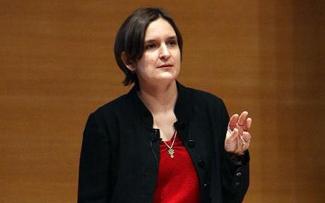Strengthening Capacity of Women Leaders in Rural India: Evaluating the Impact of Training on the Effectiveness of Elected Women Representatives (EWR) to Village Councils in Bihar
This project aims to evaluate the effect of a leaders training program by the UNDP and the State Government of Bihar, Department of Panchayati Raj, on women leaders’ confidence, villager attitudes towards female leaders, and effectiveness of female leaders. It will also seek to design and evaluate an additional negotiation training module to further empower and equip women leaders by strengthening their capacity to lead and improve voter perception of women as effective leaders. The two main questions of this study are: 1) What is the impact of UNDP’s baseline training workshops on women’s ability to effectively lead villages, on villagers’ perception of women leaders, and on public goods delivered on the ground? 2) Does the inclusion of a negotiation skill module, focusing on women’s ability to interact with government district officials and negotiate on their behalf and that of the village, strengthen UNDP’s main program and women’s effectiveness as leaders? The key outcomes of interest of this study include but are not limited to (i) the process and quality of decision making; (ii) efficiency in implementation of public programs at the village level, including the quality and quantity of public goods provided and villagers’ reported satisfaction with public programs; (iii) the image of women as leaders; and (iv) greater provision of goods preferred specifically by women. The intervention will be implemented and rigorously evaluated using a randomized control trial (RCT) approach. One or more districts in Bihar will be chosen for the purposes of this study. The study will test two interventions. The first intervention (Intervention A) is the existing UNDP training program. The second intervention (Intervention B) consists of an additional module on negotiation skills. Following a RCT approach, a subset of village councils or Gram Panchayats (GPs) will be selected from all GPs reserved for women in the 2011 elections. Female leaders from these GPs will be invited by UNDP, Bihar to their training workshop after the elections (Treatment Group). We propose further that a small subset of the group invited for the training will be selected in a second round of randomization to receive additional negotiations skills training (Treatment Group, Intervention B). The remaining GPs will be held for control and female leaders from these GPs will not receive the training in the first year (Control Group).


